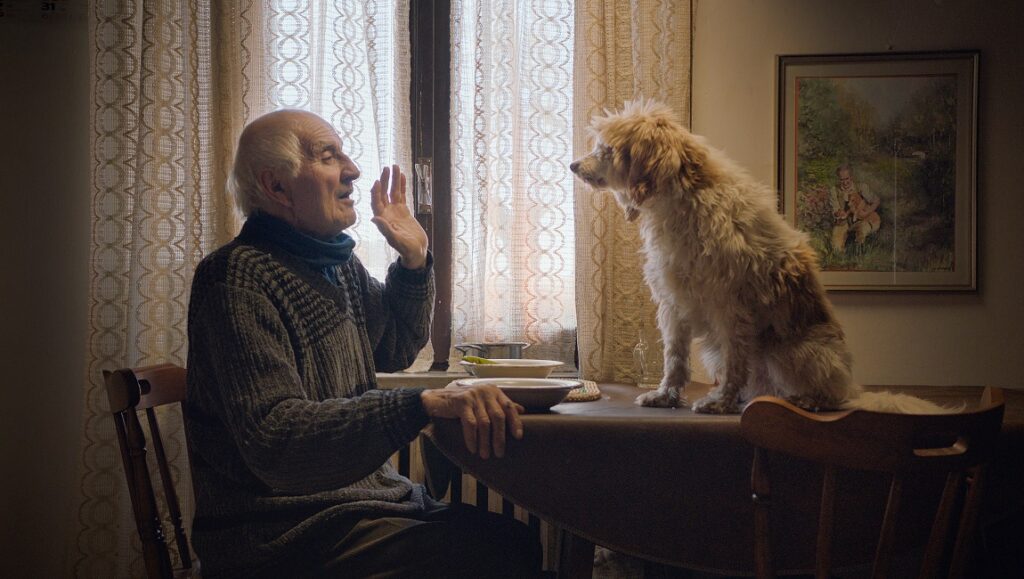The Truffle Hunters is a considerably handsome film, but one unfortunately absent of much personality or character.
The Truffle Hunters is a relatively modest festival contender, though one can see why it’s found traction on the circuit, with major play at Sundance, Toronto, and now New York. Michael Dweck and Gregory Kershaw, who previously collaborated on the 2018 stock car racing documentary, The Last Race, as director and cinematographer respectively, each act in both capacities on this film. This melding of roles speaks to the aesthetic inclinations of The Truffle Hunters and its stylized approach to nonfiction filmmaking, which is at once its great appeal, but also a point of frustration.
Taking place amongst the crisply shot foliage of Italy’s northwestern Piedmont region, The Truffle Hunters concerns itself with a small collection of elderly men and their dogs, who make a living off of harvesting the ultra-rare Alba truffle. These mushrooms have never been able to be cultivated outside the wild, and so knowing where this obscure fungus grows is lucrative knowledge, albeit knowledge in danger of being lost to time. For whatever reason, the truffle hunting tradition has not been passed on to younger generations, so the film’s proceedings have a melancholy air; this is in fact a document of the end of an era. This was more or less the idea behind The Last Race; as with that film, Kershaw and Dweck intend The Truffle Hunters to be a celebration of a niche community and an argument on behalf of embracing finitude in both culture and life. These are noble enough ideas, and the movie and its subjects are mostly sweet and pleasant to spend time with, but the film is told in an impressionistic fashion that actively avoids giving us a broader cultural context to weigh these truffle hunters against. And so the film is rather thoughtful about its profound, abstract questions, but doesn’t really want to contend with its subject in a specific manner. What the film works out to is a series of “One Perfect Shot”-esque tableaux, rigorously composed and generously lit; quite gorgeous as imagemaking, but constricting as a nonfiction form. This approach is likely to be passively enjoyed. In choosing to exert this much control over this production, Dweck and Kershaw ultimately produce something handsome, yet free of personality or character.
Originally published as part of NYFF 2020 — Dispatch 2.


Comments are closed.